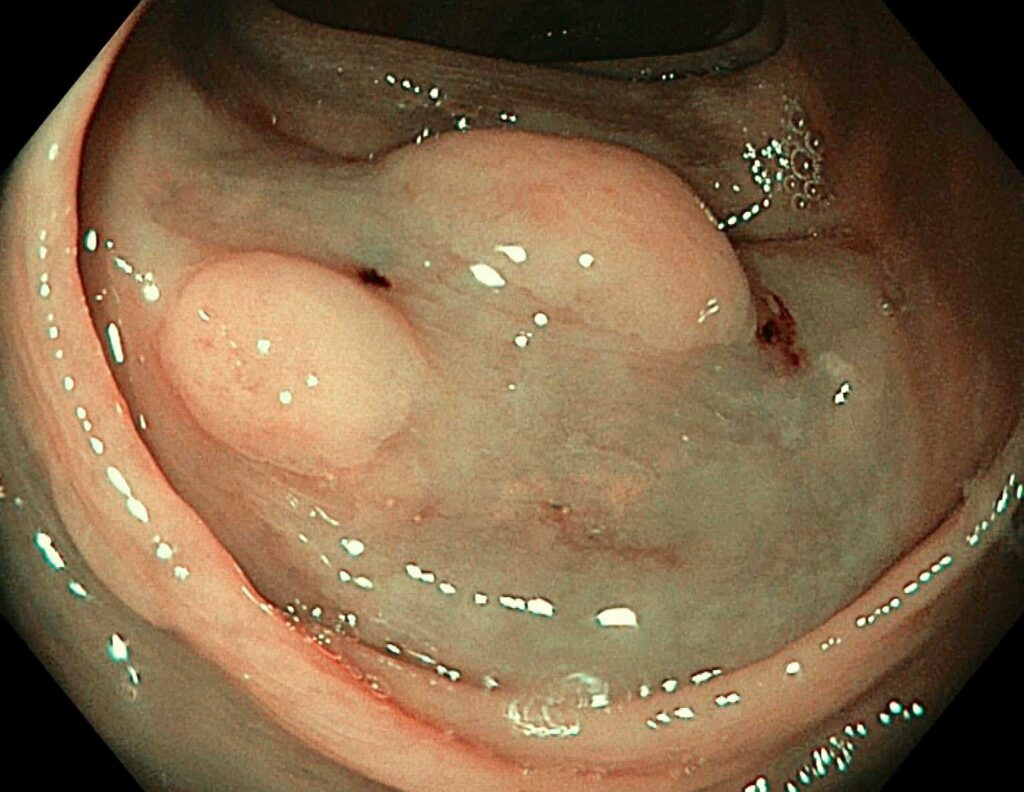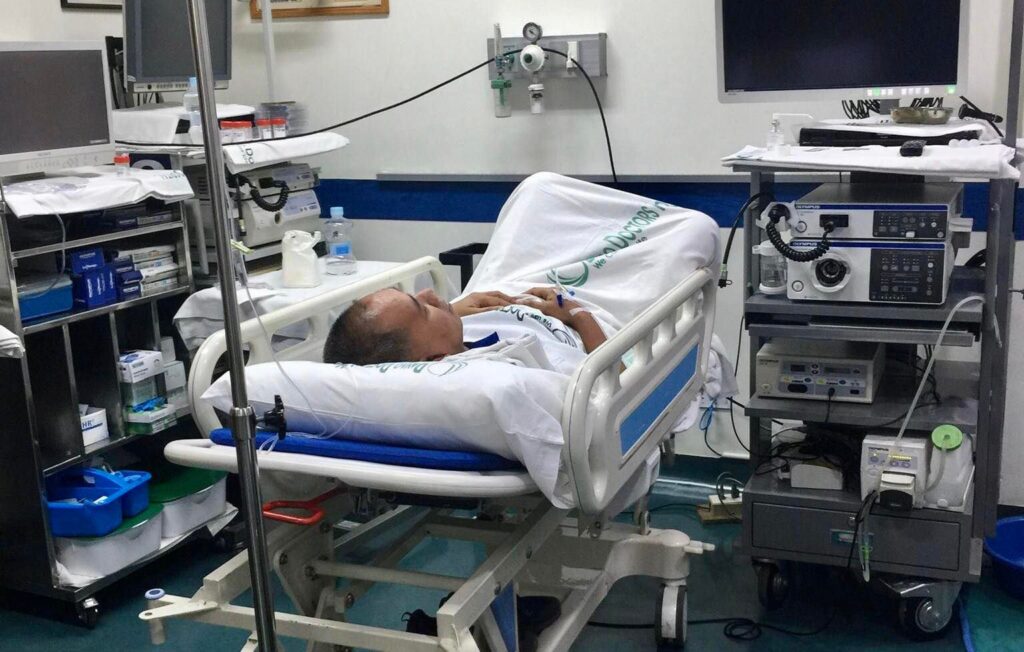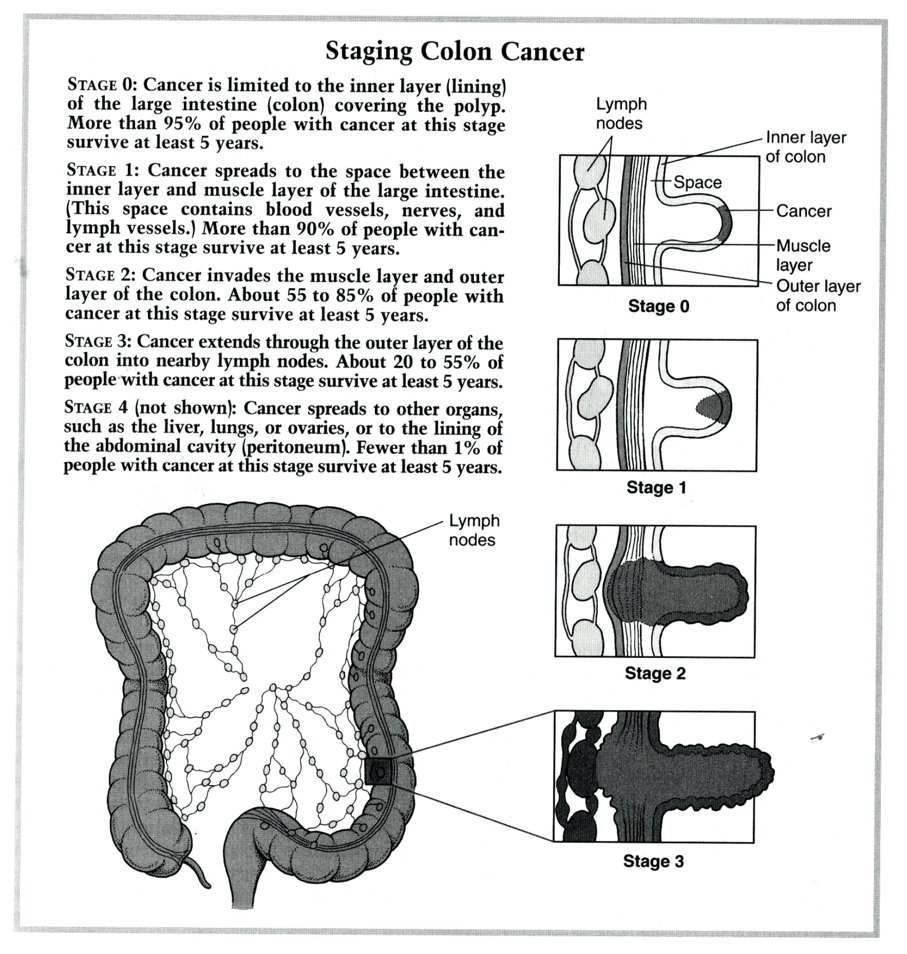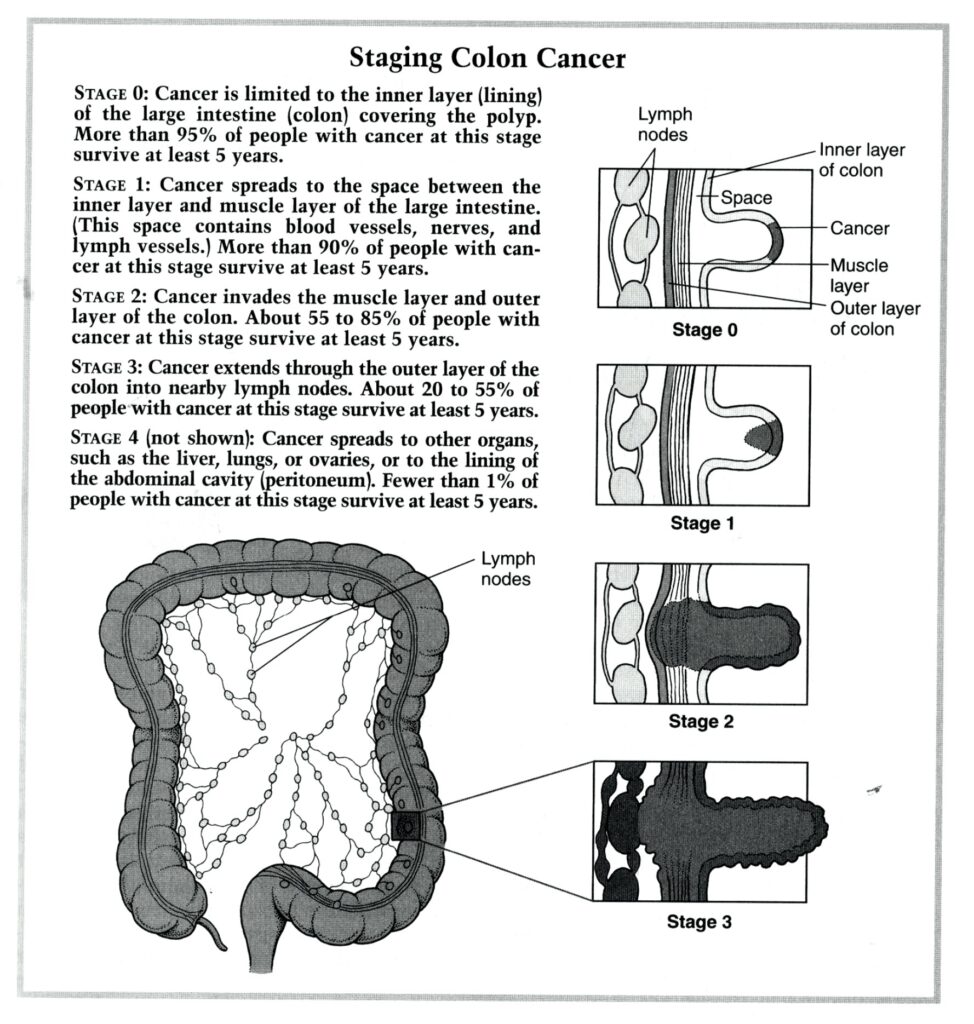By Henrylito D. Tacio
Wilfredo grew up in a small town in Bansalan, Davao del Sur. He used to eat vegetables, which his parents brought from their farm in Balutakay. Being the eldest son of five siblings, he was groomed as the one who will bring them out from poverty.
He was an intelligent student, so it was not surprising that he was given a scholarship to study in one of the best universities in Davao. He took accounting as his course. Since he was already far from his family, he started eating canned goods.

Going out with his new-found friends, Wilfredo also started smoking and drinking alcoholic beverages. There were times that he would go home at his boarding house drunk. His landlady complained because he smoked even in his room.
He did graduate and was able to be employed in a bank, where he met his future wife. They already had two children when he learned that his first-degree cousin was diagnosed with colon cancer.
He had forgotten about his cousin when one night he observed dark stools after relieving himself. There were moments also that he had this feeling of having a bowel movement but was not relieved. He was also losing weight.
His wife, Mary Ann, observed that Wilfredo often went home feeling so tired. So, she decided to bring him to a hospital. “Let’s just have a physical check-up,” she suggested. At first, her husband turned down the idea. But she persisted and so he relented finally.
After a thorough check-up, the doctor found out something. He never told them what he discovered but instead gave the address of another physician. “Go and see him,” he said. “He may be able to help you.”
They did go. To make the long story short, Wilfredo was diagnosed with colon cancer. “That cannot be,” he cried out loud.
The Philippine Cancer Program of the Department of Health (DOH) ranks colon cancer as the third most common among Filipino men and the fourth most common among women. “Four Filipinos die of cancer every hour or around 96 cancer patients per day,” the DOH pointed out.
“Among cancers, colon cancer stands out as a disease that can be largely prevented, but few people believe it will happen to them,” said Dr. Atenodoro Ruiz, Jr., a gastroenterology consultant at The Medical City and a diplomate of the American Board of Internal Medicine in Gastroenterology and of the Philippine College of Physicians in Internal Medicine.

Early detection is the key
If discovered early, colon cancer is preventable and treatable. “If it is early stage and localized within the colon, the cure is 100 percent,” said Dr. Ruiz.
“Early detection of colon cancer is crucial because it allows for more treatment options and a higher chance of a positive outcome,” explained Dr. Necy S. Juat, a medical oncologist at the National Kidney and Transplant Institute, Lung Center of the Philippines, and the Medical City. She is also a member of Cancer Care Registry Philippines Foundation, Inc.
“When colon cancer is detected at an early stage, it is more likely to be localized to the colon or rectum, making it easier to remove surgically.”
According to Dr. Juat, the prognosis for early-stage colon cancer is generally favorable, with high survival rates.
“However, the specific prognosis will depend on various factors, including the stage of the cancer, the individual’s overall health, and the response to treatment,” she said. “Regular screenings, such as colonoscopies, are essential for early detection and prevention of colon cancer. It’s important to consult with a healthcare professional for personalized advice and guidance regarding colon cancer detection, prevention, and treatment options.”

Colonoscopy and FIT
The key to colon cancer is the polyps, which do not cause any symptoms. But they can be discovered by regular screenings such as colonoscopy. It is an examination used to detect changes or abnormalities in the large intestine (colon) and rectum.
Colonoscopy usually takes 30 to 45 minutes. However, in some instances, it may take longer, depending upon what is found and what is done during the test.
“During a colonoscopy, a flexible tube with a camera is inserted into the colon, allowing the doctor to visualize the colon,” Dr. Paolo O. Dillera, a gastroenterologist at the Lanang Premiere Doctors Hospital, Inc. in Davao City. “If colon polyps are found, they are usually removed. This removal is important because it can help prevent the development of colorectal cancer.”
Colonoscopy is one of the two main accepted methods of screening in average-risk individuals recommended by the various medical societies; the other is fecal immunochemical test (FIT). Colonoscopy should be done every 10 years while FIT is recommended every year.
“Colonoscopy is regarded as the gold standard for CRC screening because of its ability to diagnose and potentially remove early precancerous lesions,” said Dr. Ruiz. “However, it is an invasive test, which requires procedural sedation and has potential to cause harm.”
Treatments
The Philippines now has several treatments available for colon cancer.
“The primary treatment for early-stage colon cancer is surgery, where the tumor and surrounding tissues are removed,” said Dr. Juat. “If the cancer has not spread beyond the colon, surgery alone may be curative. In some cases, depending on the specific characteristics of the tumor, additional treatments such as chemotherapy or radiation therapy may be recommended after surgery to reduce the risk of recurrence.”
According to Dr. Juat, the survival rates for colorectal cancer vary based on several factors. These include the stage of cancer, a person’s age and general health, and how well the treatment plan works.

Survival rates
“The 5-year relative survival rate for localized stage colorectal cancer is 91%,” she said. “About 37% of patients are diagnosed at this early stage. If the cancer has spread to surrounding tissues or organs and/or the regional lymph nodes, the 5-year relative survival rate is 73%.
“About 36% of patients are diagnosed at this regional stage,” she continued. “If the cancer has spread to distant parts of the body, the 5-year relative survival rate is 14%. About 22% of patients are diagnosed at this late stage. However, for patients who have just one or a few tumors that have spread from the colon or rectum to the lung or liver, surgical removal of these tumors can sometimes eliminate the cancer, which greatly improves the 5-year relative survival rate for these patients.”
Survival rates are also available for colon cancer and rectal cancer separately. “For colon cancer, the overall 5-year relative survival rate for people is 63%,” she said. “If the cancer is diagnosed at a localized stage, the survival rate is 91%. If the cancer has spread to surrounding tissues or organs and/or the regional lymph nodes, the 5-year relative survival rate is 72%. If colon cancer has spread to distant parts of the body, the 5-year relative survival rate is 13%.
“For rectal cancer, the overall 5-year relative survival rate for people is 68%,” Dr. Juat said. “If the cancer is diagnosed at a localized stage, the survival rate is 90%. If the cancer has spread to surrounding tissues or organs and/or the regional lymph nodes, the 5-year relative survival rate is 74%. If the cancer has spread to distant parts of the body, the 5-year relative survival rate is 17%.”
All the statistics Dr. Juat cited were adapted from the American Cancer Society’s (ACS) publications, Cancer Facts & Figures 2023 and Cancer Facts & Figures 2020: Special Section – Cancer in Adolescents and Young Adults. Other sources were from the International Agency for Research on Cancer website and the National Cancer Institute’s Surveillance, Epidemiology, and End Results (SEER) Program.
For patients who survived the ordeal, Dr. Juat suggested the following lifestyle changes: good nutrition, less red meat, regular exercise, and stop or avoid smoking and drinking alcoholic beverages. – ###
Credits:
1) Before colonoscopy (Henrylito Tacio)
2) Colon polyps (Paolo O. Dillera)
3) Colon cancer (Wikipedia)
4) Colon cancer staging (Merck manual)








